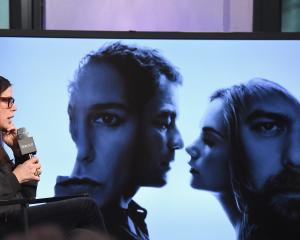Medicine, and mankind's attempts to keep its members alive and healthy, have resulted in both horror of Frankensteinian proportions and marvel at its most marvellous.
Those outcomes, at both ends of the spectrum, are never more likely than at the sharp end of the medical experience: surgery.
Surgery is a discipline best ignored if possible.
Why spend one's time dwelling on the effects of a scalpel glinting cruelly in the morning sun before it plunges deep, deep into the flesh, slicing though gristle before grinding against bone as blood pours unhindered from the wound - unless one has to?
But sometimes, surgery enters the public domain and demands attention, last year's debate on keeping neurosurgery in Dunedin an example.
And, lo and behold, neurosurgery is just about the most fascinating subject one can imagine.
You won't know that if you missed the first episode of Blood and Guts: A History of Surgery on Prime on Sunday evening.
The good news is there are four more episodes before the end of the series and, if they as good as the first, they are must-watch moments of champagne television.
Blood and Guts is ably presented by Michael Mosley, a British journalist, producer and presenter.
Mosley's story is interesting in itself.
He studied philosophy, politics and economics at the University of Oxford before working for two years as a banker, then studying medicine, before becoming a science presenter at the BBC.
The first episode - Blood and Guts, Into the Brain - took in the history of neurosurgery from its experimental period early last century, when 70% of patients did not make it off the operating table, through the unmitigated horror of lobectomies, a piece of medical butchery performed on up to 100,000 people, to the modern day, where progress is actually being made.
And it deals with one of my major fears, having the top of your head cut off and a doctor cutting bits out of your brain while you are awake.
While I would suggest making model aeroplanes as a hobby rather than having your brain surgerised, Mosley's interview with a surgeon as he worked on the brain of a young woman made for the sort of viewing that results in one sitting bolt upright in one's chair.
And, remarkably, the young woman remained both calm and lucid throughout the experience.
Next Sunday's episode looks at heart surgery, and Fixing Faces, in three weeks' time, includes the history of plastic surgery, which started 400 years ago with a spate of botched nose jobs, so badly engineered that the nose would fall off if the wind blew too hard.
Clearly, obviously and patently unmissable.





